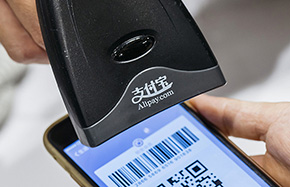Chinese yuan rises in global oil markets as Saudi seeks funding in RMB
BEIJING - Saudi Arabia is willing to consider funding itself in Chinese yuan, a senior Riyadh official said last week as the global oil markets are witnessing a rise of China and its currency.
The remarks made by Saudi's Vice Minister of Economy and Planning Mohammed al-Tuwaijri raised the possibility of the renminbi entering the oil kingdom's market.
Analysts are expecting more news from the world's largest oil exporter and its second largest consumer on the renminbi front.
Diversifying financing
Obtaining some funds in Chinese yuan will diversify Saudi Arabia's financing channels after it borrowed tens of billions of US dollars overseas last year. However, all these foreign bond issues and loans have been dominated entirely in the US currency.
Since the second half of 2014, the price of crude oil has witnessed a significant drop, swamping the oil-dominated economy. In 2015, Saudi Arabia ran a record budget deficit of almost $100 billion.
Aimed at extricating itself from the grip of oil prices, the government created its "Saudi Vision 2030," an "ambitious yet achievable blueprint" as the country describes, to reduce its dependence on oil and diversify its economy.
"One of our main objectives is to diversify the funding basis of Saudi Arabia," al-Tuwaijri said.
"We will do that through access to investors or bodies of liquidity in the markets. China is by far one of the top markets," he said.
Considering most projects under the "Saudi Vision 2030" require huge investments and feature slow capital return, Cheng Xuan, general manager at Riyadh Branch of Industrial and Commercial Bank of China (ICBC), said multi-currency funding, particularly in renminbi, expands the Saudi government's financing channels and reduces costs to address its huge money demand.
Panda bonds are yuan-denominated debt sold by foreign countries and overseas agencies in China. Cheng also believes issues of such renminbi-denominated bonds will provide a solution for cost concerns in the development of "Saudi Vision 2030."
Saudi Arabia will evade rate risks in trade if it pays Chinese suppliers in renminbi, which is likely to be welcomed among Chinese exporters, Cheng said.
Win-win economic ties
During his visit to Saudi Arabia earlier this month, Chinese Vice-Premier Zhang Gaoli said that China "supports Saudi Arabia in making its 2030 vision a reality, and would like to be a partner as the country diversifies its economy," adding that the two sides are negotiating a plan to merge the Belt and Road Initiative and the Saudi plan.
"The latest effort by Saudi and China to work more closely together on trade is an example of win-win goals," said Robert Savage, CEO and co-founder of CCTrack Solutions, a Citic Capital company specializing in fund management.
Stressing that economic cooperation is in the interest of both sides, Savage said Saudi needs to replace exporting oil to the US and instead become the key provider of oil to China, which is interested in making the renminbi a more global currency.
Since the 1970s, the primacy of US dollar has been evident. Oil and gas are priced in dollars and international hydrocarbon transactions are settled in the greenback.
From 2008 to 2014, the petrodollar mechanism with high oil prices feeds the accumulation of dollar surpluses for energy producers, which can be "recycled" into US economy to cover its deficits.
However, the fall in global oil prices has forced these oil producers to dip into their foreign currency reserves, even borrow money abroad to tackle economic challenges.
A higher US interest rate tends to make the U.S dollar stronger in comparison with other currencies. Since crude oil is globally traded in US dollars and as the US considers raising interest rates, it is likely to become more expensive for other countries to buy crude oil, thereby, reducing the demand and price of the commodity.
The renminbi as an alternative to the USdollars and oil settlement may be attractive over time as this helps diversify the risks from US control, Savage said.
He also said the level of Saudi's success with this new financial arrangement will determine whether others follow.
Savage said that as the world's second largest economy and a major energy importer, China should strive to set the renminbi as a currency for pricing commodities.
This arrangement has potential in the long term to increase renminbi influence as a globally-traded currency, Savage said.



















